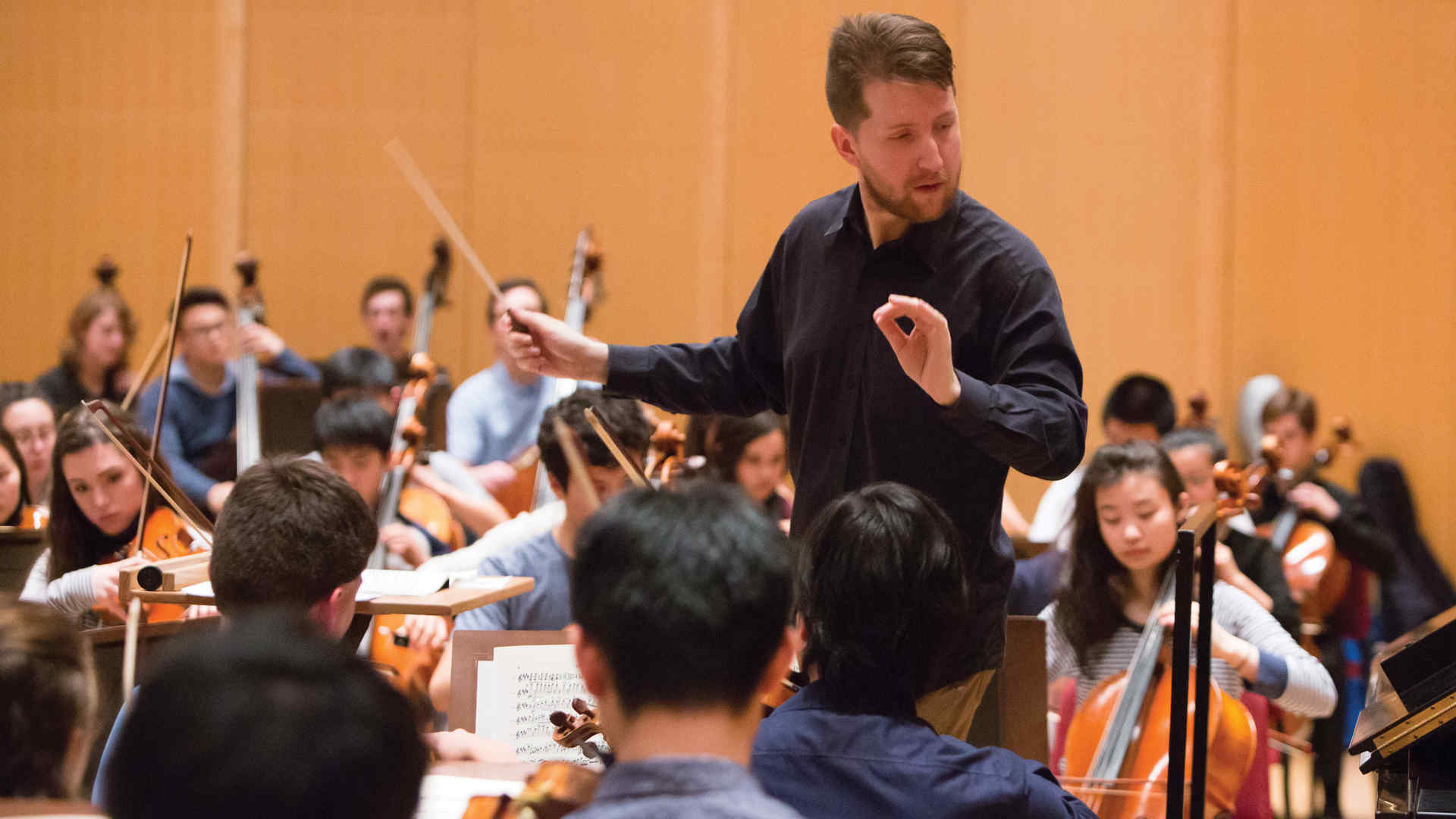
One perk of being a composer at a conservatory is hearing your music performed. In December student composers in the Pre-College division took part in a reading of their work by the Pre-College Orchestra. These workshops provide invaluable feedback from the players and conductor and reveal how a piece, holds up in performance. Oliver Hagen (Pre-College ’04), a member of the Pre-College faculty, writes about conducting a reading 13 years after being a part of one as a student composer.
Recently I stumbled across a CD of the 2004 Juilliard Pre-College Composer reading. Room 309 was the first place I had the privilege of hearing one of my own orchestral pieces live, and this digital artifact filled me with nostalgia. Fast-forward to this year’s composer reading, which I was honored to conduct.
First and foremost the reading is a collaboration. So much of what we do as performers is attempt to bring a composer’s voice to life; it is a gift when the composer can be present to work with us. With that in mind, it is of utmost importance that the conductor and composer function as a team.
To establish this working relationship, I met with each of the four composers in advance of the reading. I wanted to get a sense of their initial inspiration and to make sure we were on same page about the overall structure of each of their pieces. I asked them to imagine the orchestra playing and to practice giving efficient feedback. In his piece, The Sinking of the Cumberland by the Merrimac, Yash Pazhianur predicted having to say: “Viola, cello, and bass, starting at measure 161: I would like to hear those accents more.” It may seem odd that one would practice giving these types of comments, because one never knows what will actually happen in any given rehearsal. However, setting up an expectation beforehand can help organize one’s listening in the moment—direct and immediate delivery is key.
During the reading, it was informative for the players to hear what the composers had to say. Daniel Cho said about his piece, vita morte, “I’d love to hear a lot more of the horns at measure 148.” That’s because at that moment, the horns have chords that could be interpreted by a player as the background; but when emphasized, they sound quite lush. In her Aport Fantasy, Marina Lee asked for more bass at measure 37, where the basses have jarring syncopations that truly need to be in the foreground to have the intended effect. I asked William Shabecoff’s permission to make measure 38 of his Rhapsody sound more like a march; he agreed. It was especially impressive when Daniel Cho called out a wrong note buried deep in the cello section—players like to know that the composer can hear what they wrote, and that was certainly the case with this group. Moreover, having the composers in the room gave a unique authenticity to decisions about balance and style.
Composer readings are a critical educational component of young artists’ lives. They help ensure the future of our art form and give voice to those who have not yet been heard on the public stage.
Oliver Hagen, who studied clarinet in Pre-College, holds a bachelor’s in clarinet and composition as well as a master’s and DMA in conducting from Eastman School of Music
Juilliard Pre-College is celebrating its 100th anniversary this coming year—learn more here